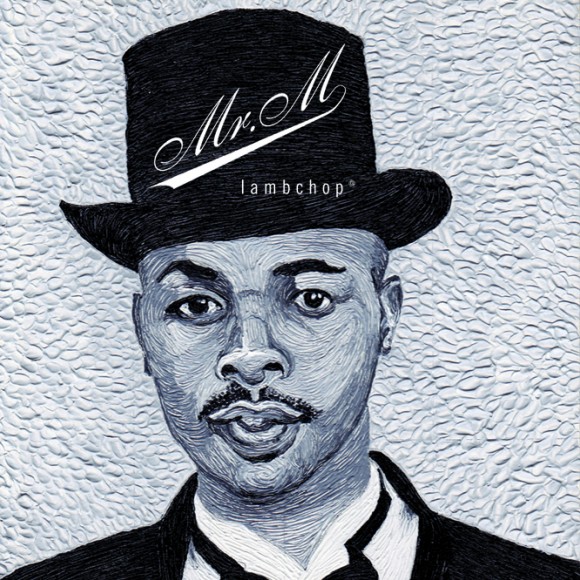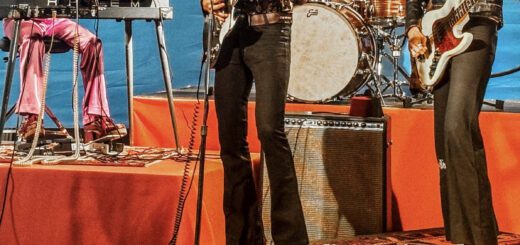Lambchop: Mr. M Review (Three Takes)
It can be difficult to gain a balanced perspective on an album after reading a single summary of the music. Bias can tilt a review, as can personal taste, history and just about everything else that is unique to the person writing it. So in an effort to offer an expanded perspective in such a medium, here are Three reactions, Three impressions, Three Takes on Mr. M by Lambchop.
Ryan O’Leary
80/10
Mr. M is subtly mischievous. And very patient. Gone are Lambchop’s familiar alt-country arrangements, replaced instead by droning vamps and orchestral strings. Frontman Kurt Wagner has dedicated this album to the passing of Vic Chestnutt, and its funereal pace is fitting for such. However, Wagner accompanies these graceful tracks with remarkable irony and imagery. On “Nice Without Mercy,” people snapping pictures with mobile phones are juxtaposed against others carrying buckets of water over mountains and the “pastoral splendor” of catching fish. In “The Good Life,” Wagner contemplates “the good life is wasted on me” while advising, “it’s not what you make, it’s what you earn”.
The two-song, 14-minute sprawl of “Gone Tomorrow” into “Mr. Met” is some of the best music to come out this year—upbeat, sparse, and a little drunk. It’s a lounge-singing grandfather waxing prolific about “the last night on the continent” where “the wine tasted like sunshine in the basement” before transitioning into a sobering choral finish. This is not an album to throw on at a party; it’s too delicate. It’s a lonely afternoon.
Mr. M takes more than one listen to really appreciate. I admit to laughing out loud at the piano accents on “Gar” upon first listen. But there’s an honesty that few other bands have here, a vividly real experience like sipping fresh lemonade or sitting on a dock, and the listen is remarkably rewarding.
Jeremy Hovda
92/10
Mr. M is Kurt Wagner’s first full-length under the Lambchop moniker since 2008’s Oh (Ohio) and the first since the death of his friend and collaborator Vic Chesnutt, to whom the album is dedicated. In several recent interviews, Wagner has attributed the unusually long wait for the LP (Lambchop previously had released an album almost every year since their1994 debut I Hope You’re Sitting Down) to the unexpected passing of Chesnutt on Christmas Day 2009. Chesnutt had been one of Wagner’s earliest supporters, inviting him and his band to collaborate on 1998’s The Salesman and the Bernadette, back in the days when Wagner was doing carpentry to pay for his music habit and long before Lambchop had gained any kind of mainstream recognition.
Yet if the album is inspired by Chesnutt, you’d be hard-pressed to find where it is about him, or even about friendship or loss or human mortality. It seems that his memory is more the occasion than the topic of Mr. M, (in roughly the way that 2008 swing-state politics was the occasion for Oh (Ohio) or the 37th president the occasion for Nixon). In fact, most of the songs on Mr. M would be at home on any Lambchop record of the last decade. The evocative ambiguity of the lyrics, the hushed country-lounge piano, the classical string backing, the languid tempo, and the playful beauty of Wagner’s cigarette-damaged baritone are all hallmarks of the band’s unique sound. Mr. M feels less like a tribute album than like the natural expansion of the gorgeous body of work that Wagner has been crafting steadily since the late ’90s. Mr. M doesn’t break any new ground, but with a sound so perfectly developed, that’s probably a good thing. And in the end, if the references to Chesnutt are oblique at best, the dark beauty of this album serves as a fitting tribute to his life and work.
Ali Elabbady (Background Noise Crew, Egypto Knuckles)
84/100
On Lambchop’s 11th album, the band delivers one of their finest releases by using some quite unconventional methods. There’s orchestral virtuosity matched with Americana-esque backdrops, especially on such tracks as “Gar.” Violins sweep magically through the beginning of “Mr. Met.” However, there are occasions where Kurt Wagner’s vocals don’t exactly mesh with the arrangements, rather they stumble-the-fuck-in and initially sound jarring. Then the vocals, along with the arrangements, manage to swirl into Mr. M’s aesthetic genius. And maybe that’s the takeaway of Mr. M: That a throat-grabber of an album can suck you in with light, airy, and wonderfully arranged compositions. Wagner’s vocals are the fragile yet interesting bond that glues it all together and brings it home.
Writer / co-founder














